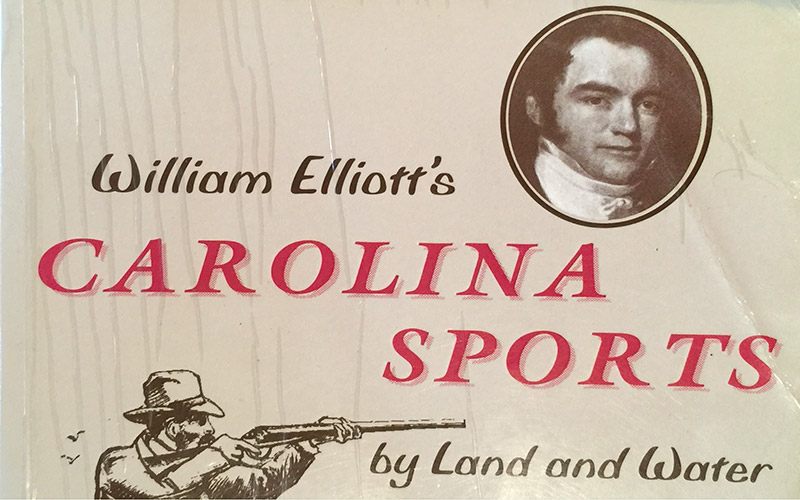
William Elliott
POLITICIAN, PLANTER, SPORTSMAN AND AUTHOR
William Elliott
In it’s first 100 years of existence, the tabby manse at 1103 Bay Street was known as the William Elliott House. There were 3 generations of Elliotts associated with the property, but the name was given to the home because William Elliott III lived there from the early 1800s until the Civil War.
William Elliott III was a highly successful politician, planter, sportsman and author. In 1825 as mayor of Beaufort he entertained the Marquis de Lafayette in the house during the Frenchman’s brief visit to town. Lafayette visited 180 towns in the 24 states that made up the United States. The 67-year-old said he wanted to visit America in its entirety before he died. Most towns Lafayette visited named streets for him. Beaufort’s own Lafayette Street is a monument to the man’s impact.
Elliott grew the valuable crop, Sea Island cotton. In fact, the variety that contributed to his wealth was marketed as “Elliott Cream Cotton.” A graduate of Harvard University, he presented at the 1855 Paris Exposition on Sea Island cotton, delivering his presentation in French.
In addition to being one of Beaufort’s most successful planters, Elliott was also known as an avid sportsman and author. He wrote what many consider one of the first sportsman narratives in 1846 called “Carolina Sports by Land and Water.” The book describes Elliott’s adventures hunting bear, deer and wild-cat and fishing for drum, sheepshead and bass. He claimed to be the first person to ever land and kill a “Devil-Fish,” the giant stingray.
Elliott was also known for resigning from the state senate over his opposition to nullification. He had served several terms in the South Carolina House of Representatives and in the South Carolina Senate. Yet he so strongly felt that secession was foolish for the state that he could no longer represent South Carolina once the Ordinance of Secession was voted upon.
Although his political views differed from those held by most Southerners, he was highly respected. He was pro-Southern but opposed secession. However, when war broke out he joined with the Confederacy. On November 7, 1861 Elliott fled the home destine for Flat Rock, North Carolina as the Union army approached the town.


Sorry, the comment form is closed at this time.